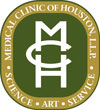Heart health is crucial for overall well-being, but knowing when to see a cardiologist can be confusing. This article will help you understand the signs and symptoms that indicate it might be time to visit a cardiologist. Whether you’re in Houston, TX, or anywhere else, these tips can help you make an informed decision.
What is a Cardiologist?
A cardiologist is a doctor who specializes in diagnosing and treating heart conditions. They have extensive training in understanding the heart and blood vessels. If you have heart-related issues, a cardiologist can provide expert care and treatment options.
Common Symptoms
Chest Pain
Chest pain is one of the most common reasons people see a cardiologist. While not all chest pain is heart-related, it’s essential to get it checked out. If you experience sharp, burning, or squeezing pain in your chest, seek medical attention immediately.
Shortness of Breath
If you find it hard to breathe, especially during physical activities, this could be a sign of a heart problem. Shortness of breath can indicate conditions like heart failure or blocked arteries.
Dizziness or Fainting
Feeling dizzy or fainting can be symptoms of a heart condition. These symptoms often indicate an irregular heart rhythm, which requires immediate medical attention.
Swelling in Legs, Ankles, or Feet
Swelling in these areas can be a sign of heart failure. When your heart doesn’t pump blood effectively, fluid can build up in your lower extremities.
Risk Factors
Family History
If you have a family history of heart disease, you should consider seeing a cardiologist. Genetics play a significant role in heart health, and early detection can help you manage risks better.
High Blood Pressure
High blood pressure is a significant risk factor for heart disease. If your blood pressure is consistently high, a cardiologist can help you manage it and reduce your risk of heart-related complications.
High Cholesterol
High cholesterol levels can lead to clogged arteries, increasing your risk of heart attacks and strokes. A cardiologist can provide medication and lifestyle changes to help manage your cholesterol levels.
When to Make an Appointment
If you experience any of the symptoms or have any of the risk factors mentioned above, it’s a good idea to see a cardiologist. Early detection and treatment can make a significant difference in managing heart conditions.
Conclusion
Heart health is essential, and knowing when to see a cardiologist can help you stay on top of your well-being. If you have symptoms like chest pain, shortness of breath, dizziness, or swelling, or if you have risk factors like a family history of heart disease, high blood pressure, or high cholesterol, don’t hesitate to make an appointment with a cardiologist. Whether you’re in Houston, TX, or anywhere else, a cardiologist can provide the care you need to keep your heart healthy.
Do you have more questions about heart health? Feel free to ask in the comments below.
